
On November 6, 2025, the College of Architecture and Urban Planning (CAUP) at Tongji University held the 16th lecture in the iCAUPOL series, with the theme focusing on Transscalar Architecture. The lecture was delivered by Professor Andrés Jaque, Dean of Columbia University's Graduate School of Architecture, Planning and Preservation. Professor Wang Lan, Dean of CAUP at Tongji University, delivered the opening remarks, while Associate Professor Shen Yao, Assistant Dean at CAUP, served as the host. The event attracted a large number of faculty. Guests in attendance included Steffen Boddeker, Vice Dean of Columbia University's Graduate School of Architecture, Planning and Preservation, as well as Professor Ole Bouman and Professor Zhang Xiaochun from Tongji University's CAUP.
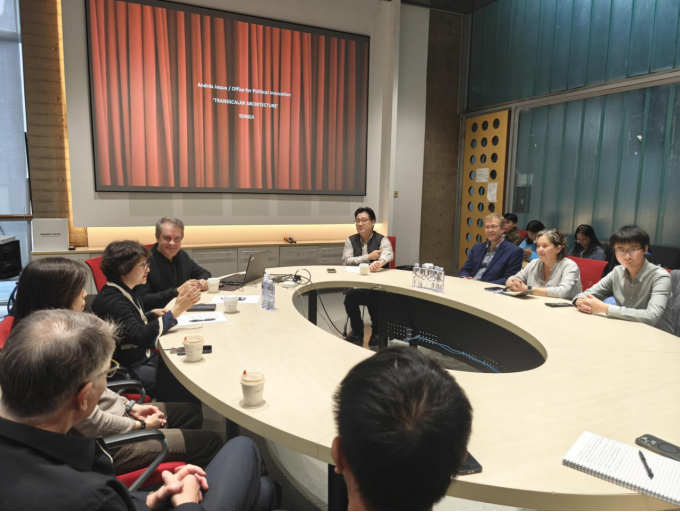
Academic Framework: Transcending Scalar Boundaries and Reshaping Ecological Practices
Professor Andrés Jaque's theoretical framework of Transscalar Architecture marks a significant breakthrough in the conventional scalar categorization within the field of architecture. Traditional architectural disciplines are often confined to the scalar scope of domestic - urban - planetary. In contrast, Professor Andrés Jaque elevates design to a level of cross-hierarchical negotiation across multiple dimensions, encompassing material, biological, social, and climatic aspects. He emphasizes that architecture should not merely be content with connecting or representing different scales. Instead, through its mediating role, it should reshape the scales themselves, becoming a technological carrier that organizes symbiotic relationships and global interdependence.
In the case study analysis section, Professor Andrés Jaque provided an in-depth examination of multiple projects, including the Reggio School, Rambla Climate-House, Stonelife, and Ocean Space. Through these cases, he vividly demonstrated how architecture can function as a device that skillfully integrates the interdependencies among bodies, species, and infrastructure. Taking the Reggio School as an example, this project successfully transformed educational functions into ecological infrastructure, achieving an organic fusion of education and ecology. The Rambla Climate-House, on the other hand, innovatively transformed climate regulation into a shared practice among citizens and families, bringing climate regulation out of the professional realm and integrating it into daily life.
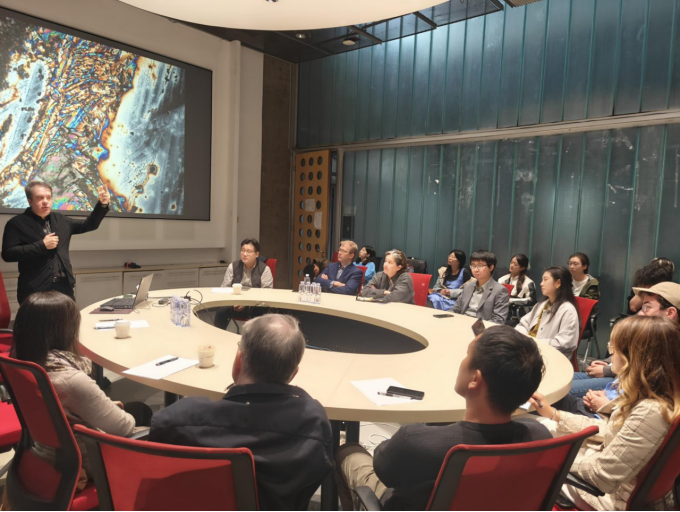
Interactive Session: Exploring Sustainable Practices
The interaction session was a vibrant showcase of interdisciplinary integration, drawing enthusiastic participation from students of CAUP as well as those from other colleges. A medical student questioned and discussed with Professor Andrés Jaque about the long-term recyclability of architectural materials and their dynamic characteristics. Professor Andrés Jaque pointed out that this underscored the vital nature of materials. Although sustainability concepts are not novel in architecture, it's still essential to deeply explore differences in architectural sustainability practices between China and foreign countries and integrate recyclability and sustainability into practice in the long run.
Meanwhile, Professor Andrés Jaque also emphasized that the practice of transscalar architecture must be intimately connected with specific cultural contexts. In light of this, within the framework of globalization, architects are required to possess a profound cultural sensitivity. They should adapt architectural design and practice to align with the cultural characteristics and social demands of diverse regions.
During the interactive session, Professor Ole Bouman, drawing on his extensive teaching experience and profound academic background, engaged in a friendly and constructive dialogue with Professor Andrés Jaque. Their exchange further broadened the audience's perspectives and stimulated more thinking about the future development of architecture.
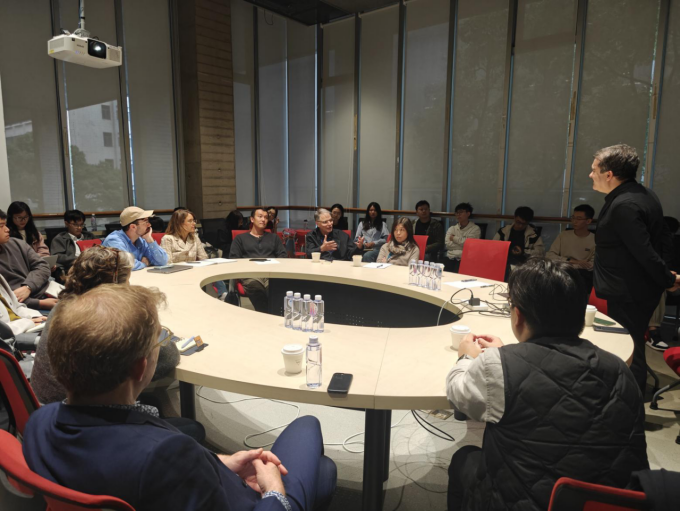
Driving Paradigm Shifts and Demonstrating Academic Leadership
This lecture, through the close integration of theoretical frameworks and case study practices, opened up a new cross-scalar and multidimensional perspective for architectural research. Professor Andrés Jaque's critical thinking not only challenges traditional disciplinary boundaries but also emphasizes the crucial role of architecture as a cosmopolitical technology. In the face of the increasingly severe global climate change and ecological crises, this theory provides a highly innovative path for addressing these challenges.
As an important platform for international academic exchange, the iCAUPOL Lecture Series has always been committed to promoting cutting-edge explorations in built environment science. The successful hosting of this lecture not only highlights Tongji University's leading role in global architectural education but also provides a high-quality platform for Chinese and international architectural scholars to exchange ideas and spark intellectual collisions. It is expected to drive architecture to take more solid steps on the path of ecological paradigm transformation.
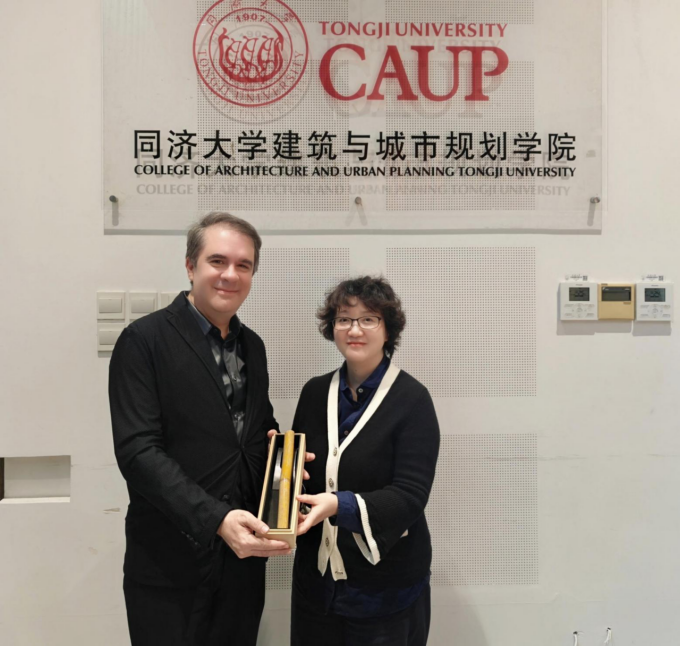
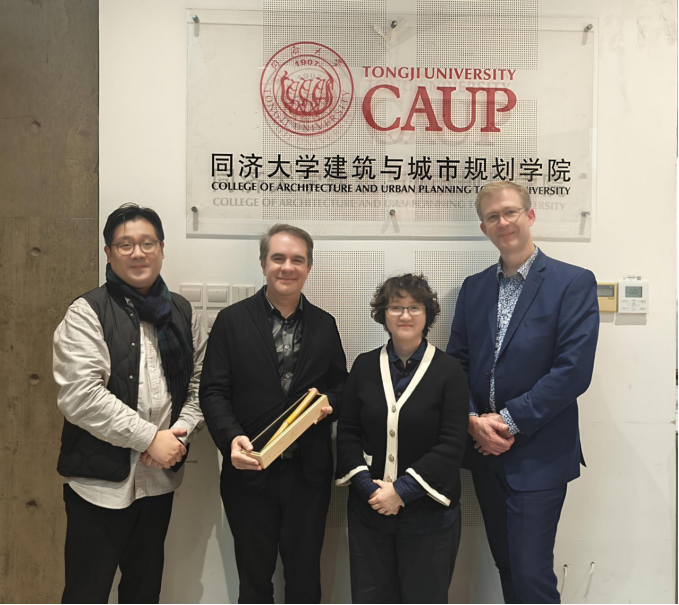
About iCAUPOL
iCAUPOL, an acronym for the International CAUP Open Lecture, represents a distinguished international lecture series organized by the College of Architecture and Urban Planning (CAUP) at Tongji University. The series is dedicated to transcending geographical, disciplinary, and academic confines. Through the engagement of globally eminent scholars, it propels the advancement of built environment science, explores the frontiers of scholarly knowledge, and cultivates a consensus on the latest scientific and technological progress within the field.
 ABOUT US
ABOUT US




